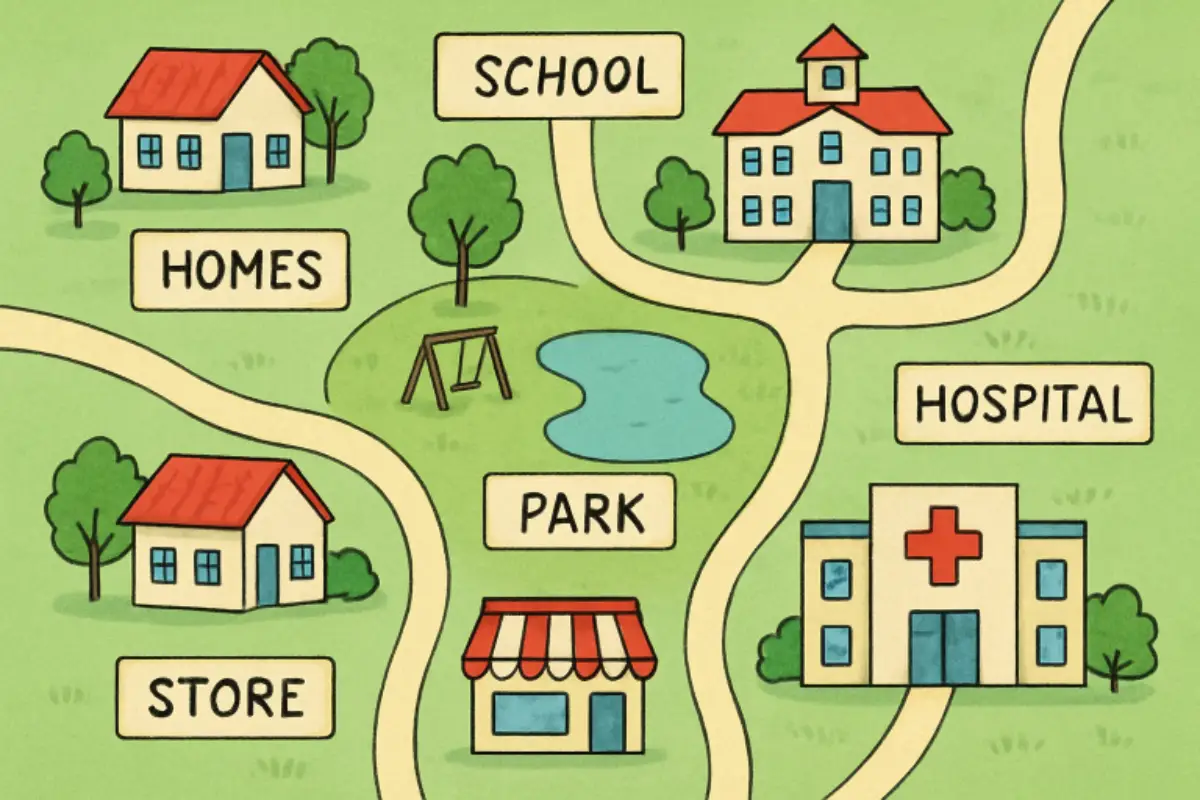How to Research Neighborhoods Before Making a Home Purchase
Finding the right home involves more than just square footage and curb appeal; the neighborhood is equally important to your long-term happiness and investment value. The location of your new home will influence daily life, including commute times, access to amenities, and the types of activities you and your family can enjoy. A great neighborhood not only enhances your lifestyle but can also maximize the resale value of your property.
Skipping thorough neighborhood research can lead to unpleasant surprises such as unexpected noise levels, poor school options, or rising crime rates. Home shoppers looking for Fallbrook CA homes for sale often compare more than just properties—they evaluate entire communities to ensure the area fits their needs now and in the future.
Contents
Factors to Consider When Evaluating a Neighborhood
School Districts and Education Quality
Even if you don’t have school-aged children, the quality of nearby schools can impact property values and neighborhood desirability. Use public resources to review school ratings, district boundaries, and parent reviews.
Safety and Crime Statistics
Crime rates vary significantly between neighborhoods. Research police reports and crime mapping services, and consider visiting the local police department website. Neighborhood safety affects property value, peace of mind, and future insurance costs.
Amenities and Accessibility
Proximity to amenities—such as parks, shopping, dining, gyms, and healthcare—adds convenience and supports an active lifestyle. Check for public transportation options, walkability, and how easy it will be to access major highways for work or family outings.
Using Online Tools for Neighborhood Insights
Online resources streamline neighborhood research. Interactive maps and real estate websites allow you to compare school ratings, commute patterns, available listings, and local amenities. Platforms provide insight into area attractions and community favorites.
Analytical data from sources helps you spot historical and emerging real estate trends. These tools empower buyers to make informed comparisons by visualizing metrics such as home price appreciation, rental rates, and inventory changes.
Assessing Community Vibe and Lifestyle Fit
Finding Local Events, Clubs, and Cultural Centers
A strong sense of community can make a neighborhood feel like home. Research local organizations, visit community centers, and scan event calendars (e.g., local government or community websites) to discover how residents connect. This is especially important if you value active social life, cultural activities, or access to volunteer opportunities.
Real-life Observations and Talking to Current Residents
Nothing replaces the firsthand experience of walking through a community. Stroll local streets, visit parks, and dine at neighborhood restaurants to get a feel for the daily rhythm. Talk to residents about living there, what they love, and what could be improved.
Evaluating Future Development and Growth Plans
Consulting City Council Agendas and Planning Boards
Neighborhoods evolve. Research city council agendas and planning board meetings to stay informed about major development projects like new schools, roads, or commercial centers. Municipal websites and planning departments list upcoming projects and community impact studies.
Gauging How Upcoming Projects May Impact the Area
New infrastructure can boost property values, while certain projects may increase noise or congestion. Balance the potential benefits and drawbacks of growth by considering community feedback and projected timelines for completion.
Final Steps Before Making an Offer
Visiting at Different Times of Day and Week
A neighborhood’s character can change dramatically at different hours. Visit during weekdays, weekends, mornings, and evenings to assess traffic patterns, noise, and neighborhood activity. Pay attention to street lighting, public behavior, and parking availability.
Double-checking Your Research with Local Experts
Before making an offer, consult trusted real estate agents, residents, and community leaders. These experts can answer lingering questions and highlight details you might have missed during your investigation.
Final Thoughts
Thorough neighborhood research ensures you choose a home that supports your daily life and your long-term investment. By combining data-driven insights with firsthand experience and expert guidance, you can confidently select a community that aligns with your values, lifestyle, and goals.

